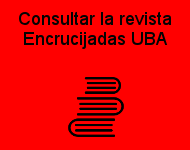untitled
An analysis of the loss of monetary sovereignty from the regulation theory: Argentina and Ecuador
Paredes, Gonzalo


Editor:
IDEHESI
Fecha:
2019-06-09
Tipo de documento:
info:eu-repo/semantics/article
info:eu-repo/semantics/publishedVersion
info:eu-repo/semantics/publishedVersion
Formato:
application/pdf
Idioma:
spa
Descripción:
The purpose of this paper is to analyse the loss of monetary sovereignty in Argentina and Ecuador and state why the latter keeps a monetary regime without its own currency. The convertibility was founded on the promise of no intervention of a collective power, whereas this almost disappeared in the dollarization.
This work is based on a theoretical structure presented by Bruno Théret and the research of the founders of the French school of the regulation theory. Theret (2013) points out that the monetary sovereignty is supported while the three dimensions of confidence are coalescing: methodical, hierarchical and ethical. When it is not the case, it is identified as crisis of monetary sovereignty, allowing the possibility of () losing the currenc, totally or partially.
The comparative analysis presented in this works concluded that Ecuador assumed the loss of the monetary sovereignty differently from Argentina, reducing the problems caused by monetary restriction.
However, the loss of monetary sovereignty, even if it is not total, could destroy the social and productive structure of an economy and the confidence coalition that supports the currency, it is part of its institutional nature. Any economy with successive and permanent external shocks cannot cope with the existing coalition, much more if the debt structure is extremely complex.
El objetivo de este trabajo es analizar la pérdida de la soberanía monetaria en Argentina y Ecuador, e indagar por qué Ecuador mantiene un régimen sin moneda propia. La convertibilidad se fundó en la promesa de que no habría intervención de un poder colectivo, mientras que en la dolarización esta última instancia casi desapareció. El marco de este trabajo es la estructura teórica de las investigaciones de los fundadores de la escuela francesa de la teoría de la regulación y la presentada por Bruno Théret. Este autor (2013) señala que la soberanía monetaria se sustenta mientras las tres dimensiones de la confianza: metódica, jerárquica y ética, hagan coalición. Cuando no es así, se identifica una crisis de la soberanía monetaria, y se abre la posibilidad de la pérdida, total o parcial, de la moneda. El análisis comparativo presentado en este trabajo concluye que Ecuador asumió la pérdida de la soberanía monetaria de una forma muy distinta al caso argentino, que redujo los problemas de la restricción monetaria. Sin embargo, la pérdida de la soberanía monetaria, aunque no sea total, puede destruir el tejido social y productivo de una economía, y la coalición de confianzas que sustenta la moneda, es parte de su naturaleza institucional. Ninguna economía con shocks externos sucesivos y permanentes, y sin soberanía monetaria, puede sobrellevar la coalición existente, y más, si el entramado de deudas es excesivamente complejo.
El objetivo de este trabajo es analizar la pérdida de la soberanía monetaria en Argentina y Ecuador, e indagar por qué Ecuador mantiene un régimen sin moneda propia. La convertibilidad se fundó en la promesa de que no habría intervención de un poder colectivo, mientras que en la dolarización esta última instancia casi desapareció. El marco de este trabajo es la estructura teórica de las investigaciones de los fundadores de la escuela francesa de la teoría de la regulación y la presentada por Bruno Théret. Este autor (2013) señala que la soberanía monetaria se sustenta mientras las tres dimensiones de la confianza: metódica, jerárquica y ética, hagan coalición. Cuando no es así, se identifica una crisis de la soberanía monetaria, y se abre la posibilidad de la pérdida, total o parcial, de la moneda. El análisis comparativo presentado en este trabajo concluye que Ecuador asumió la pérdida de la soberanía monetaria de una forma muy distinta al caso argentino, que redujo los problemas de la restricción monetaria. Sin embargo, la pérdida de la soberanía monetaria, aunque no sea total, puede destruir el tejido social y productivo de una economía, y la coalición de confianzas que sustenta la moneda, es parte de su naturaleza institucional. Ninguna economía con shocks externos sucesivos y permanentes, y sin soberanía monetaria, puede sobrellevar la coalición existente, y más, si el entramado de deudas es excesivamente complejo.
Fuente:
Cycles in history, economy and society; No 52 (2019): 1st Semestre; 109-139
Relación:
https://ojs.econ.uba.ar/index.php/revistaCICLOS/article/view/1394/2012
Identificador:
https://ojs.econ.uba.ar/index.php/revistaCICLOS/article/view/1394
http://repositoriouba.sisbi.uba.ar/gsdl/cgi-bin/library.cgi?a=d&c=ciclos&d=1394_oai
http://repositoriouba.sisbi.uba.ar/gsdl/cgi-bin/library.cgi?a=d&c=ciclos&d=1394_oai
Derechos:
Derechos de autor 2019 Ciclos en la historia, la economía y la sociedad
Cita bibliográfica:
Paredes, Gonzalo (2019-06-09). An analysis of the loss of monetary sovereignty from the regulation theory: Argentina and Ecuador. (info:eu-repo/semantics/article). IDEHESI. [consultado: ] Disponible en el Repositorio Digital Institucional de la Universidad de Buenos Aires: <https://ojs.econ.uba.ar/index.php/revistaCICLOS/article/view/1394>





























